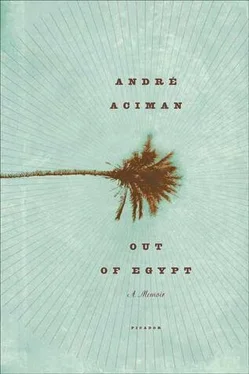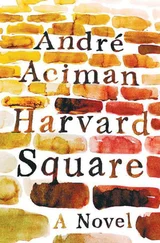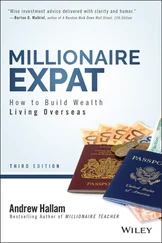It meant our everyday lives, an era, the first uncertain visit to Egypt in 1905 by a young man named Isaac, our friends, the beaches, everything I had known, Om Ramadan, Roxane, Abdou, guavas, the loud tap of backgammon chips slapped vindictively upon the bar, fried eggplants on late-summer mornings, the voice of Radio Israel on rainy weekday evenings, and the languor of Alexandrian Sundays when all you did was go from movie to movie, picking up more and more friends along the way until a gang was formed and, from wandering the streets, someone would always suggest hopping on the tram and riding upstairs in second class all the way past San Stefano to Victoria and back. Now it all seemed unreal and transitory, as if we had lived a lie and suddenly had been found out.
“What should I do in the meantime?” I asked, emphasizing distress in my voice, because I could not see pretending that life would go on as usual. “Do? Do whatever you want—” my father started to say, letting me already savor the thought of dropping out of school and spending every day that spring going to the museum in the morning and then wandering through the bustling streets of downtown Alexandria, stalking my every whim. But my grandmother interrupted: “Never, no,” she said with growing agitation. “He has to go to school. I won’t accept it.” “We’ll see,” said my father, “we’ll see.” She was about to go on, when he said, “Don’t raise your voice, now of all times, not now.” As she walked out of the room, I heard the tail end of her sentence, “—telling his son to become a degenerate, of all things. Who’s ever seen such a thing? Who? Who? Who?”
At that point a click was heard at the front door and Uncle Nessim walked in. He had recently abandoned his habit of leaving the house at the crack of dawn and taking long walks along the Corniche, and seeing him now, everyone was dumbstruck. All morning we had been whispering because we were sure he was sleeping in his room. We had never even discussed whether to keep the bad news from him.
The truth is that, at the age of ninety-two, Uncle Nessim was dying of stomach cancer. He would spend hours in bed, crouched in a semifetal position which he said was the least painful — and thus, folded in two, hugging himself, he would sometimes fall asleep. Only once had I caught him in that position. They were tidying his room, and as I passed by his open door, I spied him lying in bed, wearing striped pajamas, holding his chest as if it were the dearest thing he owned. He looked sallow and small. The previous Friday evening, while reading the Sabbath prayers, he seemed absent and exhausted. He did not smile when my father said, as he always did before prayers, “ Falla breve , Nessim, make it short.” He ate nothing. His sisters had prepared a special pinkish jelly pudding for him, and it stood staring at him in a glass goblet while he kept reading. He cut the prayer short. But when it was time to eat, he dipped his spoon into the wobbly pudding, played with it, tasted it, and then, sensing we were all staring at him, said he couldn’t. It was then I realized that beneath his dark smoking jacket and the glistening purple ascot peeped the faded, bluestriped outline of his pajamas. He wanted to go to bed. There was no one to take over the prayer. Neither my father nor I knew Hebrew, and both of us refused to have anything to do with prayers, even in French. “This is very sad,” said Aunt Elsa. “There was a time when this room was full of people, full of candles too. The table didn’t even have enough leaves to seat everyone. The house is too big now. And Nessim is not well.”
I remembered the room on those crowded taffi al-nur evenings, generations piled together, the oldest and the youngest separated by a century — so many of us. Now no one was left. They had stowed away the good china and gaudy silverware; dinner was served in one course; someone was always listening to the radio during the meal; and, because Aunt Elsa was put in charge of family expenses, even the wattage of the dining room lamp had been dimmed, so that a weak, pale-orange glow was cast over our faces and our meals, the shade of our last year in Egypt. My mother compared the once-resplendent dining room chandelier to a dying man’s night-light.
The old furniture looked older, drabber, and there were entire sections of the apartment that had probably never been touched since the Isotta-Fraschini days. The service stairway had become so dirty that I never ventured near it. Almost all the furniture was in disrepair, much of it patched together or put aside, waiting for a heaven-sent visitor who, with the patience, know-how, and devotion of a carpenter’s son, might finally remove the gummed paper that held so many caned chairs together in our dining room and perform the long-awaited miracle. “Sand always wins in the end,” Aunt Elsa said, quoting her brother Vili as she ran her finger through the dust that had accumulated on the brown furniture after a particularly fierce hamsin that year. No one cleaned much of anything any longer. The apartment smelled of cloves, not just because they used it in cakes all the time, but because the three remaining siblings used it on their aching teeth.
Nessim was scheduled for surgery two weeks before Passover. As a precautionary measure, he was persuaded to transfer all of his assets to Aunt Elsa. “You watch,” said my grandmother, peeved they had considered her unfit to handle the responsibility because she had suffered a mild stroke a few summers before. “Mark my words,” she said and proceeded to make gestures mimicking the passage of food from the mouth down the esophagus and into the stomach. “She’ll swallow all of it.” In fact, Nessim’s money was never seen or heard of again.
Strangely, Uncle Nessim had suddenly felt better during the night and had decided to go out for his usual walk at dawn. Everyone was so surprised to see him up and about, that instead of chiding him for taking a walk in his condition they began to pester him with questions. “But nothing’s the matter with me,” he kept saying, “I feel perfectly fine.” “But you could have fallen, or gotten sick. Something might have happened.” “Then I would have died and that would have been the end of that.” When you get old, he used to tell me, you don’t care about death. You aren’t even ashamed of dying.
He proceeded to light a cigarette and asked for a cup of coffee. Dazzled by his spectacular recovery, Aunt Elsa kept fretting. “I knew it was a kapparah .” Kapparah, in Jewish lore, was the necessary catastrophe that precedes an unforeseen windfall. You do badly at school, but that same afternoon someone you love narrowly escapes being hit by a car; you loose a precious jewel, but then you run into a very old acquaintance you thought had entirely disappeared. Kapparah allowed you to experience bad luck, but with the understanding — and it had to be a vague, uncertain understanding, not a clear-cut deal —that for each blow you received, you averted a significantly worse one.
No sooner had my grandmother heard the word than she shot her sister a venomous stare. “Look at her, the pernicious viper that she is,” she whispered to me, “look how she’s dying to tell him about the factory. She’s going to keep dropping hint after hint until he finds out.” “Not at all,” protested Elsa in whispers. “Can’t one be happy without having one’s motives questioned every time? Living with you is like being in jail sometimes.”
As soon as coffee was brought in, Nessim took his cup and motioned to my father and me to follow him into the living room, then shut the frosted glass door behind him. “They took her, didn’t they?” he asked. My father nodded. “How did you know?” “What am I, stupid?” he interjected. “All I had to do was take a look at all your dour faces.” Then, smiling, “This kapparah is costing you quite a bit, isn’t it?” he said. “But don’t worry, I’m not really better. I just wanted to see the Corniche for the last time.” Then, still smiling, he pointed to the door where the crouched outlines of both sisters could be seen glued to the glass. They moved away as soon as he neared the door.
Читать дальше












